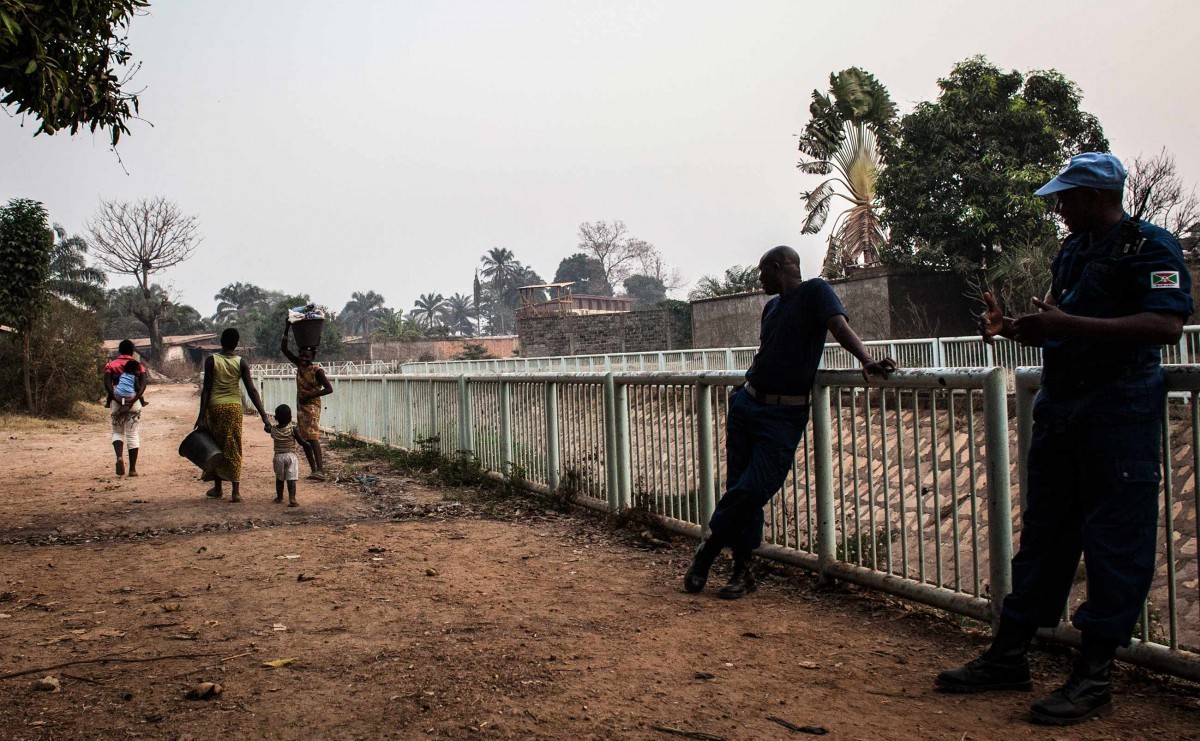It would be very easy for an empowered man like me to play it safe in relation to gender issues; restrain my natural verve and passion; stand back instead of up and out; take no risks and excuse my inaction by saying that women have now “got it” in relation to gender-based violence, abuse, inequity and secrecy.
After all, Starbucks recently trained its whole staff on diversity and followed the lead of Iceland and elsewhere in guaranteeing gender pay parity for all staff. The #MeToo Movement and seven other women feature in the Top 20 of Fortune’s latest list of the “World’s Greatest Leaders”. Miss America has finally ended its controversial swimsuit competition. Prominent male abusers continue to get their comeuppance, such as New York Attorney General Eric Schneiderman. And a porn star may actually help to bring down another prominent politician, who has boasted of “grabbing women by the …”

Unfortunately, such a celebration of victory would be premature and complacent at best. And counter-productive and dangerous at worst. The struggle is far from over.
Supposedly “developed” countries like Germany and the UK have actually fallen in The Economist’s latest Global Glass Ceiling Index. Norway’s bold experiment with gender quotas on boards has not produced the desired results so far. Likewise in Australia where family violence against women has increased despite such noble initiatives as the annual “White Ribbon Day” when men are encouraged to speak out against gender-based violence.
Much more disturbingly, an eight-year-old girl was gang-raped and murdered in Northern India and her attackers are now being defended and protected by an unlikely coalition of religious nationalists and legal professionals. All men.
And on a personal note, I have rarely met a woman anywhere in the world, who has not faced some kind of discrimination, harassment or assault at some point in their life. It has usually happened in the past at home, in college or near the start of their careers. But sometimes it has happened more recently, even in positions of power.
For example, there was a recent incident at a large global company, which features on most lists for “Best Companies to Work For”, “Diversity and Inclusiveness”, etc.
A few years ago, a senior female leader was attending a corporate meeting in another state where she was sexually assaulted and harassed by a peer, apparently with two silent male witnesses just looking on. Despite an outcry to other senior leaders, nothing happened to her assailant; her health and career were seriously compromised; and she finally filed a lawsuit a few months ago.
The company’s response was to fire the attacker; pay the victim off and then oust and silence her; and essentially declare the case “closed” as if nothing happened. After all, it was an isolated – if shocking – incident, right?
Probably not.
I had been training at this company for over five years. I was proud of the work I did there before this incident came to light. But I clearly had a quick choice to make as I was meant to be working there soon afterwards with some people who probably knew the parties involved.
In terms of Karen Stinson’s Diversity Awareness Spectrum (below), should I try to continue to be a change agent from the inside or a fighter from the outside?
I have no regrets about becoming a “fighter” in this instance. And I will not hesitate to do so again in future.
Everyone – including empowered men like me – still needs to be vigilant and proactive in making sure that such incidents never happen again and if they do, they are dealt with swiftly, fairly and justly.
We men cannot just be passive bystanders or allies anymore. We need to be committed advocates and activists, taking consistent and sustainable action.
And sometimes we need to be Angry Men. Whether we are black, brown, white, red, green, yellow or blue. Not in the Charleston and Charlottesville way. But in the #MeToo, BLM and Never Again mold. We need to feel and show our passion and emotions in a healthy, constructive manner.
Actor and activist Terry Crews discussed his own gender-related experiences again on TV recently and admitted his own culpability around equity issues in the past.

But he ended on an optimistic note: “This is fixable … 20 years ago you could never talk about things like this … now we have made it more comfortable to do so … and once you have the conversation, everything can really change.”
And so I now call on all other men to do these 10 things to help promote real, sustainable change in gender dynamics (and other areas of inequity and oppression in our society):
- Know who you are and what you stand for. Clarify your own values and goals. Identify your own hot buttons and blind spots
- Embrace complexity, ambiguity, inconsistency and fallibility in your life (and others). We are all human
- Recognize and then swiftly and sincerely take responsibility for any transgressions you may have committed in the past. An authentic apology is never too late
- Seek out and connect with other allies, advocates and activists of all genders for solidarity and support
- Always try to walk your talk and if you are in a public position of power, be a proactive role model for others
- Stand up, speak out and act up for gender equity, working with and for people of all genders in a caring, practical and non-patronizing way
- Have the difficult or awkward conversation with others around gender. Usually in a private, safe place
- Really listen to the stories of victims, Ask them appropriate questions. Avoid the temptation to launch into problem-solving right away
- Do the same with those who have actually been abusive, complicit or oblivious themselves. Try to build bridges with them, however repulsed or frustrated you may feel. And forgive them if they are genuinely remorseful
- Be strong, compassionate and consistent. And keep going!

